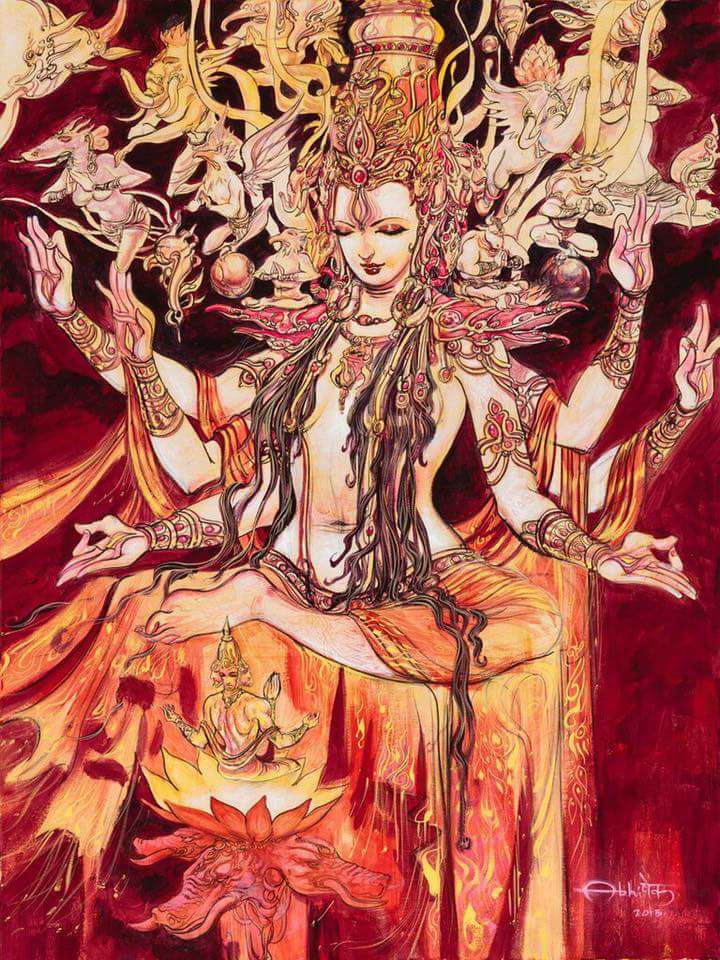Sage Lomasa was an ardent devotee of Vishnu. He spent all his time in devotions to the Lord. As he grew older, he started worrying that his time on earth was growing short and was altogether too brief to indulge in the bliss of worshiping Lord Vishnu. He then began performing a severe penance. When the Lord appeared before him, he asked for a boon of long life, to be spent in devotions to the Lord.Vishnu was pleased, besides, it had come to his attention that Lord Brahma had become too proud because of his longevity. (One lifespan of Brahma is equal to 3x1014 Trillion years) Lord Vishnu wished to humble Brahma, and so he granted the following boon.
"Each time the reign of a one Brahma completes, you will shed one hair on your body. You will live as long as you have hair left on your body. You can indulge in your heart's desire of devotion to me."Some sources say that his name is "Romasa" (Roma = hair). As he has an exceedingly large life span, he is practically immortal.
https://en.wikipedia.org/wiki/Yaksha_Kingdom#Pandavas_Expeditions
http://ancientvoice.wikidot.com/mbh:lomasa
http://ancientvoice.wikidot.com/mbh:lomaharshana
http://www.wisdomlib.org/definition/lomasa
Ekadasi
"Each time the reign of a one Brahma completes, you will shed one hair on your body. You will live as long as you have hair left on your body. You can indulge in your heart's desire of devotion to me."Some sources say that his name is "Romasa" (Roma = hair). As he has an exceedingly large life span, he is practically immortal.
https://en.wikipedia.org/wiki/Yaksha_Kingdom#Pandavas_Expeditions
- http://www.sacred-texts.com/hin/m03/m03047.htm to
- http://www.sacred-texts.com/hin/m03/m03175.htm
http://ancientvoice.wikidot.com/mbh:lomasa
http://ancientvoice.wikidot.com/mbh:lomaharshana
http://www.wisdomlib.org/definition/lomasa
Ekadasi








